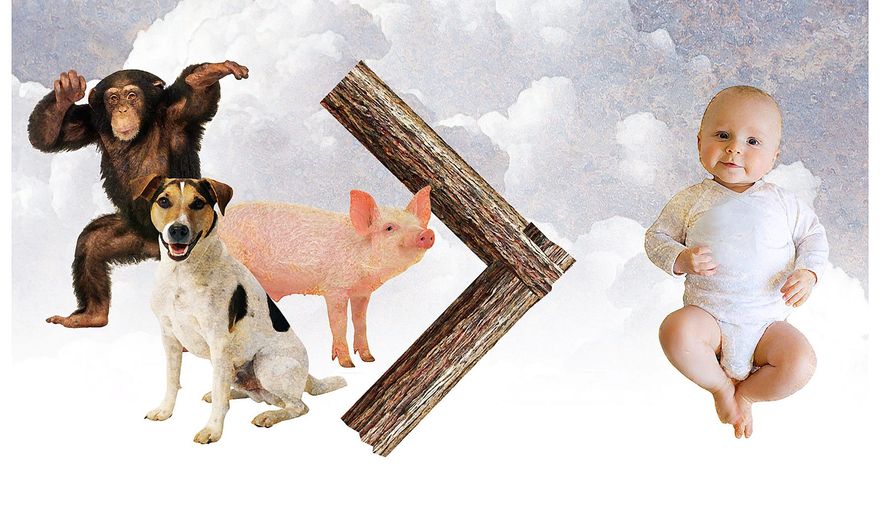OPINION:
The decline of Judeo-Christian values in the United States is a topic of concern that’s been analyzed greatly over the past decades. Less discussed is this: What if the left co-opts these values?
Pope Francis’ climate change encyclical, released last month, is an example of the left’s influence within a mainstream religious institution. But that only goes so far, as the Catholic Church has rejected a number of planks of social liberalism. So the left is also working to change attitudes among the flock, not just the shepherds.
One area where left-wing activists are trying to influence minds is through the animal rights/animal liberation movement. The Bible is quite clear that man has dominion over animals and can use animals to his benefit.
Animal activists once argued traditional thought should be battled. Peter Singer, the godfather of the animal liberation movement, has remarked, “I think in the end we have, reluctantly, to recognize that the Judeo-Christian religious tradition is our foe.” But rather than fight a frontal assault, contemporary animal rights activists are using religious language to undermine the very concept of dominion.
People for the Ethical Treatment of Animals (PETA), which wants to ban meat, dairy, eggs, and other animal products, has a long-running campaign claiming that Jesus was a vegetarian. Some of the group’s other antics include crucifying a person wearing a pig mask, calling Jesus the “Prince of Peas” (instead of “Peace”), and holding signs that read, “Thou Shalt Not Kill. Go Vegetarian.”
The Humane Society of the United States (a national group not related to your local pet shelter) has also founded its own internal religion department and formed a religious advisory committee drawing everyone from a conservative evangelical Liberty University professor to liberal spiritualist Marianne Williamson.
HSUS’s goals are the same as PETA’s, and its tactics are similar. HSUS encourages Christians to “eat mercifully” and to show “compassion” in their food choices. Like PETA, however, this translates into not eating animal products at all. (Given PETA’s opposition to “captive” animals in zoos, one wonders what they’d think of Noah’s Ark.)
Jewish festivals involve meat and Jesus fed the multitudes with fish, so the idea that Jesus was a vegetarian or would mandate that we all become vegans is obviously false. But the facts don’t matter to these people. Their end goal does, and if that requires historical revisionism and repackaging of messages in Christian language, then so be it.
Particularly dangerous to Christianity is the anthropomorphism that PETA and HSUS use to equate humans and animals. Sometimes this takes small forms, such as PETA pushing for a revision to the Bible so that animals are referred to as “he/she” instead of “it,” or more obnoxious forms, such as referring to rabbits as “rabbit people.”
Other times, it’s more subtle. HSUS targets children with animations of animals and a magazine that it pushes on school kids. It also has a series of lesson plans for schools, including a discussion of how to use George Orwell’s “Animal Farm” to attack meat production.
The ultimate consequence of conflating humans and animals can be seen in the words of Peter Singer, who has argued that Christianity is the enemy of animal liberation: “the life of a newborn is of less value than the life of a pig, a dog, or a chimpanzee.”
Fundamentally, we are not the same as animals. Religious thought flatly puts humans on a different moral plane than animals. But it’s a self-evident truth that the activists deny, so they have to use mental gymnastics to get around it.
“Considering the level of religious interest in the United States, it seems unlikely that we’ll achieve animal liberation without mobilizing, especially, Jewish and Christian progressives, and perhaps also many of the conservatives,” remarked one PETA leader. Beware that they’re already making inroads.
• Rick Berman is president of Berman and Co., a Washington public affairs firm.




Please read our comment policy before commenting.